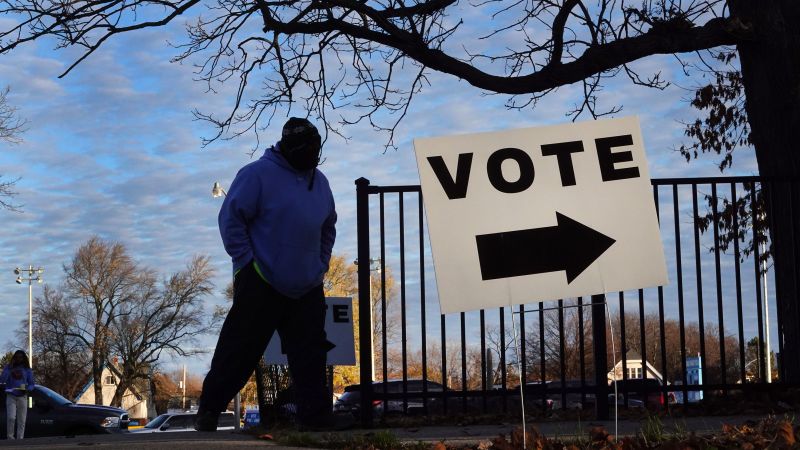Republican lawmakers and activists in several presidential battlegrounds are pushing for changes to how elections are run in their states. Critics argue that these efforts could potentially complicate the administration of voting in areas that could determine key political outcomes. In states like Wisconsin, Nevada, and Arizona, GOP-backed ballot measures are seeking to alter election processes and introduce new requirements such as banning private funding for elections, establishing voter ID requirements, and upending existing vote-by-mail systems. These measures have faced opposition from those concerned about potential negative impacts on voter participation and election integrity.
In Wisconsin, voters will soon decide on measures that would ban private money in elections and restrict who can perform tasks in election administration. These efforts are seen as a response to the significant funding received by election officials during the 2020 election from sources like the Center for Tech and Civic Life. Similar initiatives are taking place in Arizona, where legislation is being advanced to make changes to the state’s popular vote-by-mail system and require certain categories of voters to cast their ballots in person. Critics argue that these measures raise concerns about potential voter suppression, litigation, and increased costs associated with implementing the proposed changes.
In states like Arizona and Wisconsin, where election conspiracy theories have proliferated following the 2020 election, Republican lawmakers are leading efforts to address what they perceive as issues of voter confidence. Private funders, such as Mark Zuckerberg, who supported election administration efforts during the pandemic, have faced scrutiny and suspicion from GOP legislators. Legislative measures to regulate private donations for elections have been vetoed by Democratic governors, prompting Republican lawmakers to seek alternative routes like ballot measures and constitutional amendments to achieve their goals.
Opponents of the proposed ballot measures in Wisconsin and Arizona argue that the changes could have unintended consequences and create barriers to voter participation. Concerns have been raised about the potential impact on local election administration, the vagueness of the language in the ballot questions, and the lack of guarantees for increased government funding if private sources are prohibited. In Arizona, efforts to circumvent the governor’s veto authority through ballot referrals are underway, with proposals to reduce early voting days and limit vote-by-mail access sparking debate over voter access and engagement.
In Nevada, a political action committee is gathering signatures to change the state’s constitution and introduce voter ID requirements. While Nevada residents currently need identification to register to vote, they are not required to show ID when casting their ballots. The push for voter ID laws in Nevada is part of a broader nationwide trend of efforts to tighten voting regulations, driven by concerns about election integrity and confidence in the electoral process. These initiatives are being met with legal challenges and public debate surrounding issues of disenfranchisement and voter suppression.
As the debate over election administration and voter access intensifies in states across the country, concerns about the potential impact on democratic processes, voter participation, and trust in the electoral system remain at the forefront. Efforts to restrict private funding, implement voter ID requirements, and change vote-by-mail systems are being met with both support and opposition, reflecting a broader divide over how elections should be conducted and who should have access to the ballot box. These developments underscore the ongoing challenges and complexities inherent in the democratic process and the need for thoughtful, informed decision-making to ensure fair and transparent elections.


